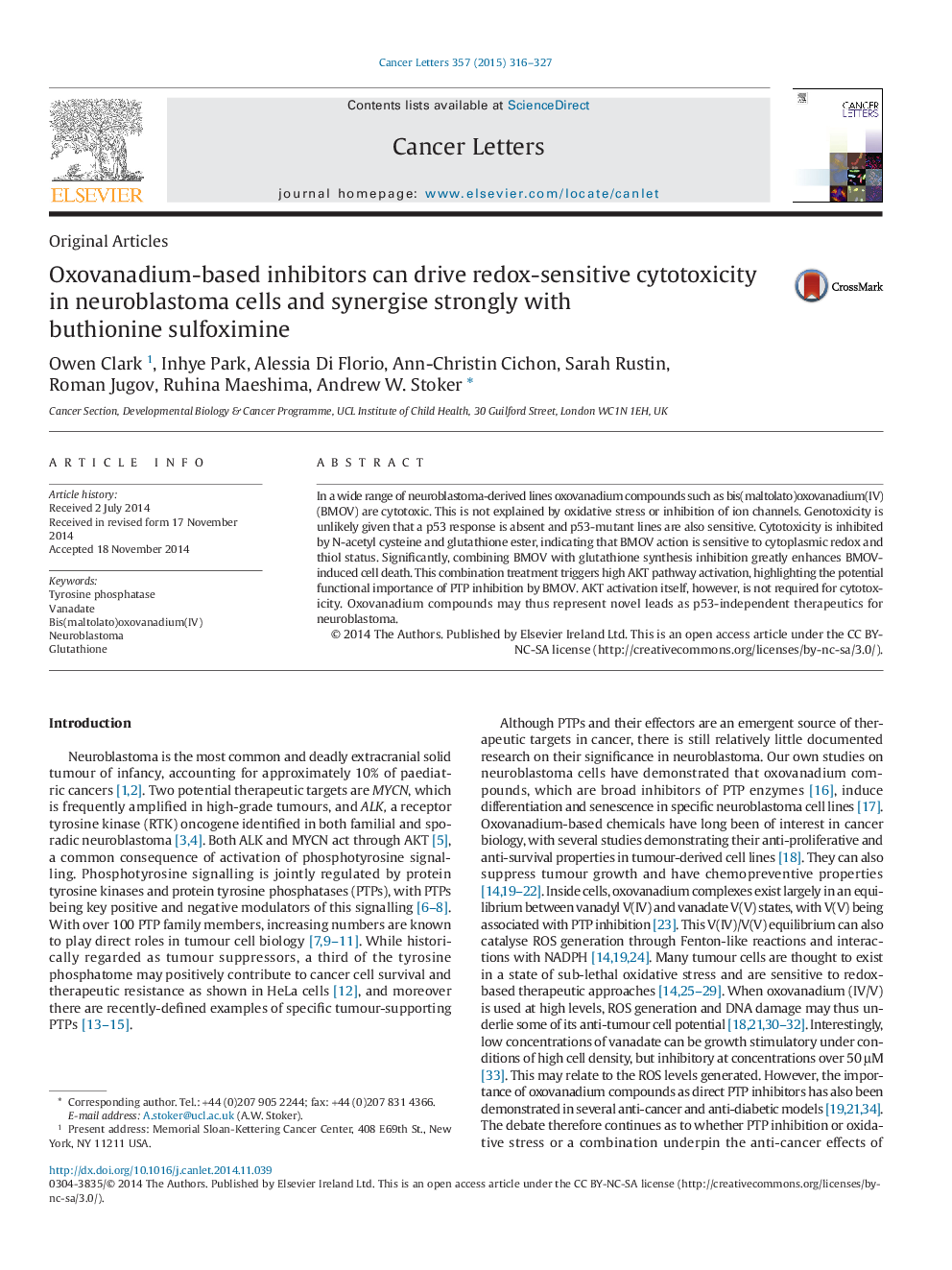| Article ID | Journal | Published Year | Pages | File Type |
|---|---|---|---|---|
| 10899593 | Cancer Letters | 2015 | 12 Pages |
Abstract
In a wide range of neuroblastoma-derived lines oxovanadium compounds such as bis(maltolato)oxovanadium(IV) (BMOV) are cytotoxic. This is not explained by oxidative stress or inhibition of ion channels. Genotoxicity is unlikely given that a p53 response is absent and p53-mutant lines are also sensitive. Cytotoxicity is inhibited by N-acetyl cysteine and glutathione ester, indicating that BMOV action is sensitive to cytoplasmic redox and thiol status. Significantly, combining BMOV with glutathione synthesis inhibition greatly enhances BMOV-induced cell death. This combination treatment triggers high AKT pathway activation, highlighting the potential functional importance of PTP inhibition by BMOV. AKT activation itself, however, is not required for cytotoxicity. Oxovanadium compounds may thus represent novel leads as p53-independent therapeutics for neuroblastoma.
Related Topics
Life Sciences
Biochemistry, Genetics and Molecular Biology
Cancer Research
Authors
Owen Clark, Inhye Park, Alessia Di Florio, Ann-Christin Cichon, Sarah Rustin, Roman Jugov, Ruhina Maeshima, Andrew W. Stoker,
